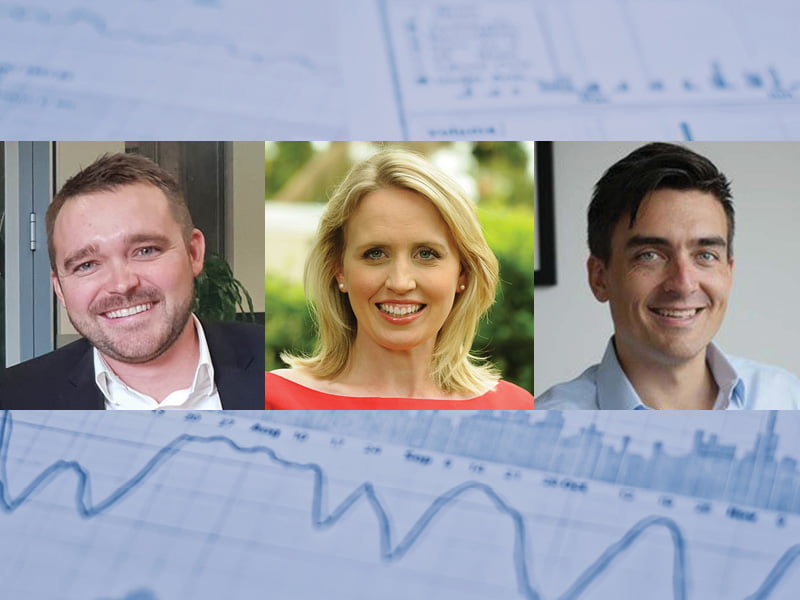The structure or the new Technology Council of Australia is a very deliberate construction, creating a powerful new group that is global in composition and outlook, but also very Australian.
Launched on Wednesday, the Technology Council of Australia is a broad collection of ecosystem interests, from Australian-founded tech behemoths to local venture capital firms, to foreign ‘Big Tech’ multinationals.
Everything about its 25 foundation members screams ‘global’. These are all companies that are at home in the world.
But it’s also a very Australian group and is rightly representative of the Australian technology landscape.
That ‘Australian-ness” is baked into its structure, with guide rails written into its constitution to make sure the strength of that Australian voice is retained into the future.

The driving force behind the Technology Council of Australia – its founder, in fact – is former StartupAus chief executive Alex McCauley, who spent the past year and a half bringing together the different parts of the tech sector in a way that possibly only a former diplomat could manage.
In six years at StartupAus, Mr McCauley has been the standout advocate for the interests of Australian tech to government policymakers, and he has taken a seat on the Tech Council board as an executive director, albeit in a part-time capacity from his new home at Stanford University.
The Tech Council’s board eligibility requirements are clever – and very interesting –playing a key part in getting the sector’s most senior people engaged. Board members must be the founder, the CEO or the chairperson of a member organisation (or Partner in the case of venture capital firms).
This is a powerful model that has meant Atlassian’s co-CEO Scott Farquhar, Afterpay’s co-CEO Anthony Eisen, Canva co-founder and COO Cliff Obrecht, :Different CEO Mina Radhakrishnan, and Culture Amp CEO Didier Elzinga are all foundation board members.
The local subsidiaries of Microsoft and Google are members of the Tech Council, meaning in theory and in practice their CEOs Satya Nadella and Sundar Pichai are eligible to sit on the board, just in case they take a deep-dive interest in the Australian market.
The same rule allowed the chairperson of US-based Tesla, Robyn Denholm, to become chair of the Tech Council board.
There are three ‘independent directors’ brought in part-time executive roles. In additional to Mr McCauley, that enabled the appointment of former federal Innovation minister Wyatt Roy (and current Afiniti Australia managing director) and former Queensland Innovation minister Kate Jones, who is now an advisor to Bevan Slattery’s Capital (b) venture capital outfit.
And newly appointed Tech Council CEO Kate Pounder also joins the eight-member board, eligible via her role as chief executive.
Also written into the Tech Council constitution is the requirement that at least 50 per cent of its member companies are Australian.
You can make the argument that Atlassian is a foreign company by way of its Nasdaq listing, or that Canva is foreign via its top company being domiciled in the US (though probably best not to make this argument too forcefully in front of these companies’ Australian founders).
Equally you can make the intellectual argument that Microsoft Australia and Google Australia are Australian, by way of registration and geography.
There is a point at which the argument becomes pedantic. But the intention of the rule is clear enough – that there is a clear Australian voice in an industry that is ultimately global. It is a criticism that is consistently levelled at the venerable Australian Information Industry Association, which has been dominated by foreign headquartered multinationals throughout its 45-year history.
Mr McCauley says “you can develop a test around this that is about a predominant connection with Australia, whether that’s about the global HQ being here in Australia, whether its about where the business was founded – those sorts of things.
“This is clearly about Australia’s tech sector, but fundamentally that does include whether they are local tech or global tech companies,” he said.
Regardless, it is the thinking behind the structure of the new Tech Council that counts. And its currently a moot point, as the vast majority of the 25 foundation partners are locally founded, and locally headquartered.
It is worth noting also that of these Australian companies, only one has previously been a member of a major industry group (by way of Atlassian very recently joining the Tim Reed-chaired Business Council of Australia).
“This is really bringing into the national conversation a group of companies that are [relatively young], and that are new to the national conversation,” Mr McCauley said.
“And I think we have made pretty clear from the statistics [in the Accenture report] that these companies are already important to the broader Australian economy and are going to become increasingly important in the years to come,” he said.
The foundation members of the Technology Council of Australia are 99designs, Afterpay, Airtasker, Airtree, Atlassian, Blackbird, Capital [b], Canva, Culture Amp, Deputy, :Different, Google Australia, HealthEngine, Jarden, LiveTiles, Main Sequence, Megaport, Microsoft Australia, Our Innovation Fund, Redbubble, Safety Culture, Sonder, Square Peg, Stripe Australia and Tyro.
The post The Tech Council is global, but very Australian appeared first on InnovationAus.
This post was originally published on InnovationAus.